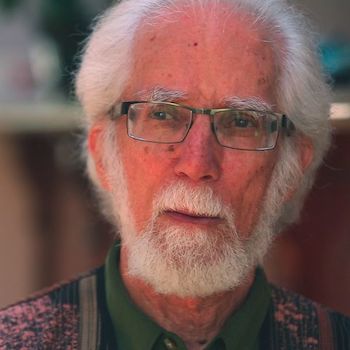
It’s easy to think of researchers as stotic characters in laboratory coats who rely on their frontal cortex and religiously follow the flowchart of “science.”
But science is not a flowchart, and researcher is really another name for someone who grew into adulthood with their curiosity intact.
Listen in to this conversation on luck, intention, intuition, investigation and biofields.

Richard Hammerschlag, P.hD
While I’ve often fantasized about waking up one morning and finding myself transformed into a practitioner of Chinese medicine, the reality is that I’ve always been more fascinated with how to test acupuncture’s effectiveness, and especially, to understand ‘how it works’. In short, I have always loved research… through a 25-year career in neurobiology, a 10-year career directing a research department at the Oregon College of Oriental Medicine in Portland, and, at present, helping to grow the Consciousness and Healing Initiative (CHI) and to define a new East/West synthesis of health and healing that I call Biofield Physiology.
Biofields, simply stated, are a family of non-biochemical regulatory mechanisms used by the body. EEG and ECG, as electrical fields commonly examined in allopathic healthcare, are well known examples of biofields produced by the brain and heart. Biophotons (particles of light) are a less understood but increasingly researched type of biofield. My interest in biofields developed in part, from an introduction to external Qigong. How, I wondered, can the body respond to a procedure that may not involve physical touch?
Other questions I am exploring, in the luxury of ‘retirement’, also arose initially from aspects of Chinese medicine: Since acupuncture and other modalities of East Asian medicine are often described as rebalancing the body, is there a whole body system that mediates such ‘homeodynamic’ regulation? Also, since acupuncture is often said to act via Yi (practitioner intention) as well as via physical effects of the needle, is intention a portal through which to explore effects of consciousness on healing?
Visit www.chi.is for more about what Richard is up to and some of the cutting edge inquiry around biofields
You don't have access to purchase this item.